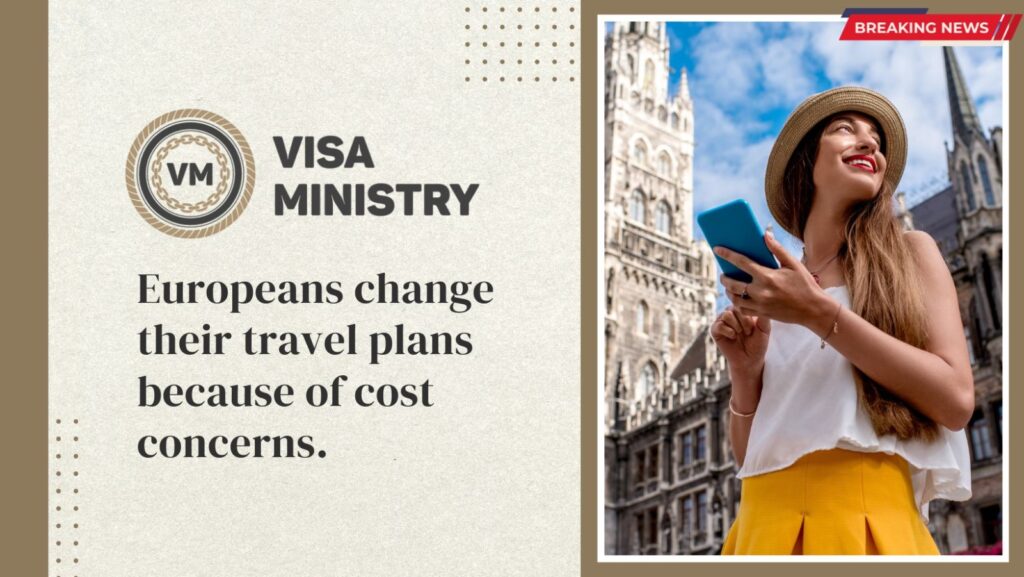The percentage of Europeans who intend to travel between June and November 2023 fell by 4% from the previous year, although it still stands at a high 69%. With 45%, 56%, and 62% of respondents from Austria, Switzerland, and Germany, respectively, having vacation plans in the upcoming months, these three countries stand out as the most cautious tourists. The British (75%) and French (80%), on the other hand, are the most keen to travel during that time.
Although a slowdown in the pent-up demand following COVID-19 can be used to explain the decline in travel intentions for Europe, the Monitoring Sentiment for Domestic and Intra-European Travel – Wave 16 study by the European Travel Commission (ETC) suggests that financial pressures are also having an impact on vacationers.
President of ETC Miguel Sanz commented on the findings, saying: “Our most recent data demonstrates that concerns over inflation and personal budgets remain among European tourists. However, Europeans continue to be excited to travel in the coming months. Many people are looking for cheaper experiences, alternative travel options, or are thinking about travelling off-season to stretch their travel budgets. We advise places and companies to take advantage of these trends and help tourists travel off the main path and during the slower seasons.
Europeans like off-season tourism and less expensive locations
Nearly a quarter (24%) of European travellers are concerned about the 6% increase in trip prices overall, while 17% are anxious about the state of the economy and their personal circumstances.
Europeans are changing their conduct both before and after arriving at their destination in order to deal with the rising cost of travel. 17% want to travel off-season to receive cheaper rates, and 14% want to go on vacation to places they think are more reasonably priced. In order to find the greatest value, 13% of European passengers hope to book their flights earlier than usual, and 12% intend to fly low-cost airlines.
In the meantime, Europeans keep changing their in-destination behaviour to meet the available budgets: 17% will reduce their shopping spending, 15% will look for less costly eateries, and 15% will pick less expensive lodging options.
Travellers from Europe are also concerned about the current conflict between Russia and Ukraine (12%), congested tourist spots (9%), booking and cancellation rules (9%), and potential severe weather conditions (8%).
The vacation plans of Europeans are influenced by the pleasant weather and tempting discounts.
Europe remains the first choice of respondents, with 59% planning to embark on a holiday within the region, while 12% aim to take a trip outside of Europe (up by 3% since 2022). Meanwhile, the popularity of domestic travel has dropped by 6%, with just 26% of travellers opting for a “staycation” in the next months.
Spain remains the most popular destination for travellers, with 8% planning a vacation there, followed by France (7%), Italy (7%), Greece (5%) and Croatia (5%). Still, Mediterranean destinations have seen a 10% drop in visitors aiming to travel there from last year. On the contrary, destinations like the Czech Republic, Bulgaria, Ireland, and Denmark are experiencing a surge in popularity. This can be attributed to travellers seeking out less crowded destinations, and milder temperatures.
A resurgence of events and business travel
Despite rising costs of living, European travellers are planning multiple trips, with 33% aiming to travel twice and 26% at least three times this summer and autumn. Another 30% of respondents are thinking of taking only one trip (4% lower than last year). In terms of duration, most European travellers (36%) are choosing to spend less than a week (four-six nights) in their destination, while 27% aim to stay seven-nine nights.
Travelling to a destination for an event is rising in popularity, with 10% of European travellers planning to do this between June and November 2023, up from 4% in 2022. Additionally, there has been a 4% increase in business travel, with 9% of respondents intending to embark on a work-related trip. Despite a 6% decline from the same period in 2022, travelling for leisure remains the top choice for 68% of Europeans.
Source- Travel daily

